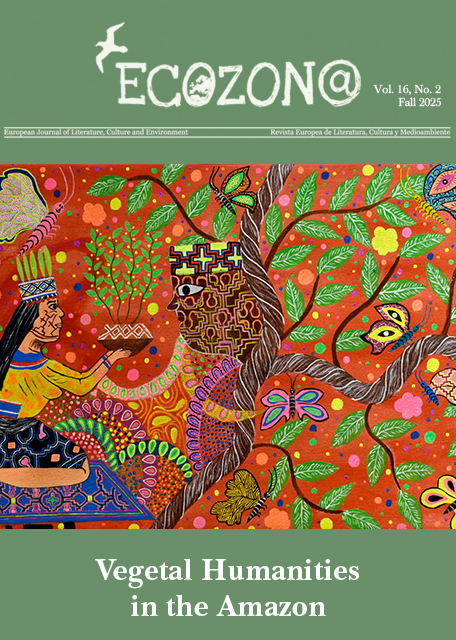Encounters of Care: Technological Kin and Nonhuman Care
DOI:
https://doi.org/10.37536/ECOZONA.2024.15.2.5375Parole chiave:
technological other, nonhuman care, posthumanism, female body, ethics of careAbstract
Practices of care are not easily categorized. They are often embedded in encounters and interactions but are impossible to frame simply according to species boundaries or the supposedly positive or negative feelings they might elicit. This fluidity of care is also characterized by dualities and contradictions, forcing a reflection on who the participants in this caring network of ontologies are, and what the expected and often unexpected results of these interactions can be. This article explores possibilities of care beyond human agency. In a world in which the human is increasingly entangled with technology, practices of care are no longer only a human prerogative. Caring encounters between the technological other and the human become spaces for the redefinition of cross-species collaborations that defy anthropocentrism and human exceptionalism. Technological practices of care towards the human emphasize the emergence of symbiotic existences that disrupts the logic of a human centered approach to the nonhuman, challenging dominant ideas of merely gentle and positive care. Kawakami Hiromi’s Don’t Get Carried Away by Big Birds (2016) and Kazuo Ishiguro’s Klara and the Sun (2021) subvert the logic of anthropocentrism by describing practices of care enacted by technological others towards the human. In their awareness of the inherent complexities and contradictions embedded in nonhuman-human practices of care, they exemplify Elena Pulcini’s notion that fear for the world means an actual care for the world. The disruptive kinships between technology and the human epitomize the non-romanticized character of technological care. By choosing to avoid both technophobia and technophilia, the two novels express the awareness that human existence is always affected by contradictory but unavoidable encounters with the nonhuman other.
Downloads
##submission.downloads##
Pubblicato
Fascicolo
Sezione
Licenza
Authors who publish with this journal agree to the following terms:
a) Authors retain copyright and grant the journal right of first publication with the work simultaneously licensed under a Creative Commons Attribution License that allows others to share the work with an acknowledgement of the work's authorship and initial publication in this journal (CC BY-NC for articles and CC BY-NC-ND for creative work, unless author requests otherwise.
b) Authors are able to enter into separate, additional contractual arrangements for the non-exclusive distribution of the journal's published version of the work (e.g., post it to an institutional repository or publish it in a book), with an acknowledgement of its initial publication in this journal.
c) Authors are permitted and encouraged to post their work online (e.g., in institutional repositories or on their website) prior to and during the submission process, as it can lead to productive exchanges, as well as earlier and greater citation of published work (See The Effect of Open Access).










